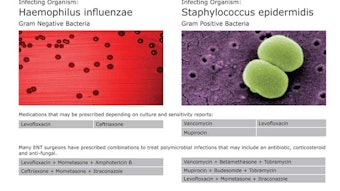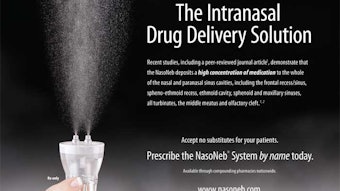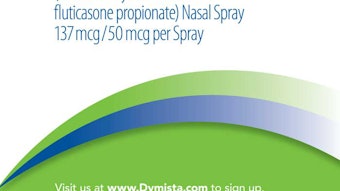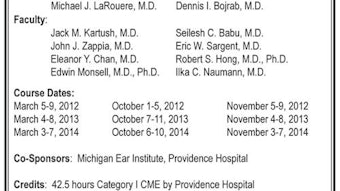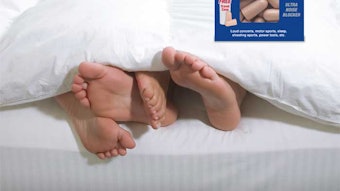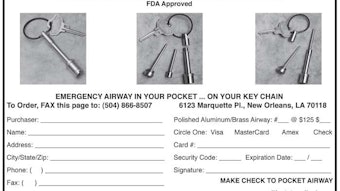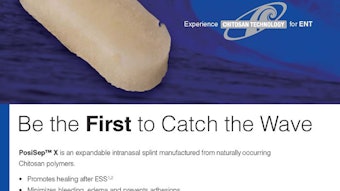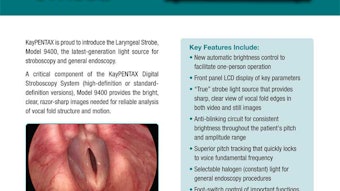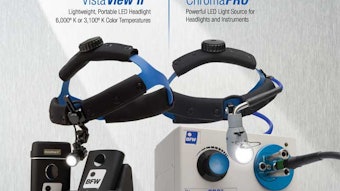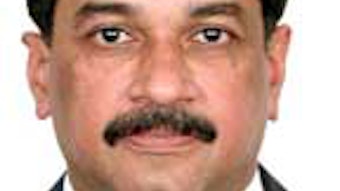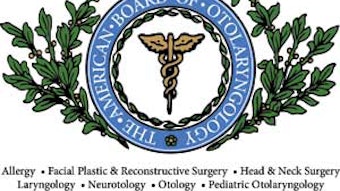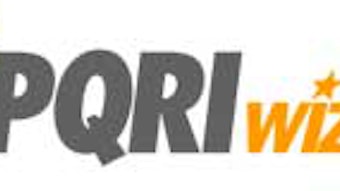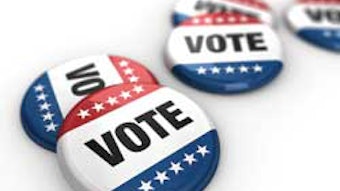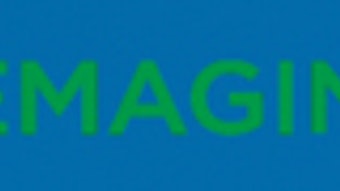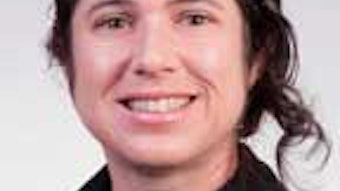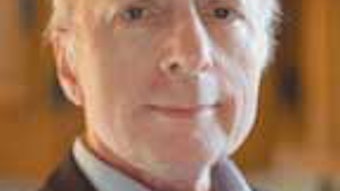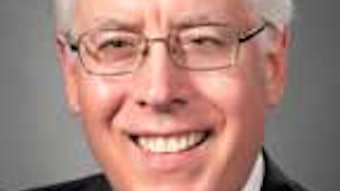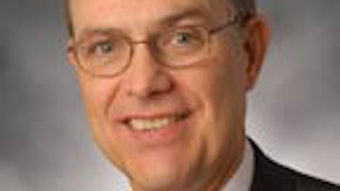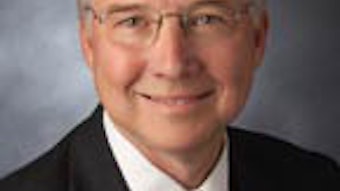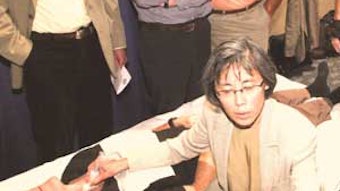Advancement of Efforts to Expand Patient Access to Hearing Aids in New York
This year, the AAO-HNS, with the Patient Access to Hearing Aids (PAHA) Coalition, continued its advocacy efforts to amend an outdated hearing aid dispensing law in New York. The current New York state law prohibits physician offices, which conduct hearing loss evaluations for the estimated 1.85 million hearing-impaired New Yorkers, from selling hearing aids for profit—any profit. The PAHA coalition was formed in 2010 to educate New York legislators, patients, and otolaryngologist-head and neck surgeons about this archaic law and to advocate for change. The PAHA Coalition includes the AAO-HNS and the New York State Society of Otolaryngologists, along with the Medical Society of the State of New York (MSSNY), the American Medical Association, the American Osteopathic Association, the American Osteopathic Colleges of Ophthalmology and Otolaryngology-Head and Neck Surgery, the American Otological Society, and others. Legislators are generally supportive of the dilemma facing physicians, physician-employed audiologists, and their patients. However, the challenges in attaining passage of legislation (A. 1739A/S. 5164A) this year were many, including opposition by organized audiology and the misconceptions of the issue, which required ongoing meetings with key legislators about hearing care in physician offices. Opponents to the Coalition’s efforts maintain that physicians should not “benefit financially from the sale of products that they order or prescribe.” However, audiologists and hearing aid dispensers are able to provide this service without limitations. Unlike some other dispensers, physicians have little profit motive for one method of treatment over the other, and will focus on the right treatment for the problem—whether it is medical, surgical, or through the dispensing of hearing aids. These “profits” help cover the cost of overhead expenses, testing and equipment, follow-up appointments, and making instrument adjustments or addressing individual patient problems. In reality, the current system is advantageous for independent audiologists and hearing instrument specialists, as the law essentially creates a mandatory referral system from physicians to these independent providers. Outside sources have concurred with the AAO-HNS position calling for a collaborative approach to patient care. In July 2009, Consumer Reports published an article titled “Hear Well in a Noisy World: Hearing Aids, Hearing Protection, and More.” The article reinforced what the AAO-HNS has asserted all along—that the best provider for hearing aids is a medical office headed by an ENT physician, with an audiologist on staff to fit and dispense hearing aids. There are several reasons cited for this recommendation, including higher marks than other providers from patients for thoroughness in evaluating hearing loss, and the ability of the otolaryngologist to rule out medical conditions and remove cerumen prior to the hearing test. Essentially, when otolaryngologists and audiologists work together, this model ensures that all patients get the right care from the right professional. This year, the Coalition advocated for the introduction of amended legislation in both the Assembly and the Senate. The amended language focused on the collaborative relationship between audiologists and physicians, allowing those audiologists working in a physician’s office the opportunity to work within their full scope of practice and dispense hearing aids. By the session’s end, the Assembly bill had 39 cosponsors, and the Senate bill had five cosponsors. On average, bills can take several years to be adopted. Thanks to the remarkable efforts of many AAO-HNS New York members, tremendous progress was made in 2012. As part of the PAHA Coalition effort, Academy members wrote letters to legislators, obtained support from patients and colleagues, including audiologists, met with legislators prior to Lobby Day, and ultimately attended the New York Coalition of Specialty Care Physicians’ Lobby Day at the State Capitol in Albany. Overall this session, AAO-HNS members and other PAHA representatives participated in more than 50 meetings with legislators and sent more than 350 emails using the AAO-HNS and MSSNY advocacy alert systems. While ultimately we were unable to secure passage of the legislation this year, we will continue to push for fair laws that ensure patients have access to needed hearing health services. Thus, the PAHA Coalition plans to seek reintroduction of A. 1739A/S. 5164A in 2013. Although the efforts of the AAO-HNS and the PAHA Coalition are making a positive impact, this must remain a priority for all otolaryngologist-head and neck surgeons, regardless of subspecialty. The AAO-HNS encourages all New York members to become involved and make a difference in the lives of their patients. For more information on the PAHA Coalition and our legislative efforts in New York, please visit the PAHA Coalition website at http://www.entnet.org/Practice/members/PAHA.cfm (AAO-HNS member log-in required). With questions, email the AAO-HNS Government Affairs team at legstate@entnet.org.
This year, the AAO-HNS, with the Patient Access to Hearing Aids (PAHA) Coalition, continued its advocacy efforts to amend an outdated hearing aid dispensing law in New York. The current New York state law prohibits physician offices, which conduct hearing loss evaluations for the estimated 1.85 million hearing-impaired New Yorkers, from selling hearing aids for profit—any profit.
The PAHA coalition was formed in 2010 to educate New York legislators, patients, and otolaryngologist-head and neck surgeons about this archaic law and to advocate for change. The PAHA Coalition includes the AAO-HNS and the New York State Society of Otolaryngologists, along with the Medical Society of the State of New York (MSSNY), the American Medical Association, the American Osteopathic Association, the American Osteopathic Colleges of Ophthalmology and Otolaryngology-Head and Neck Surgery, the American Otological Society, and others.
Legislators are generally supportive of the dilemma facing physicians, physician-employed audiologists, and their patients. However, the challenges in attaining passage of legislation (A. 1739A/S. 5164A) this year were many, including opposition by organized audiology and the misconceptions of the issue, which required ongoing meetings with key legislators about hearing care in physician offices.
Opponents to the Coalition’s efforts maintain that physicians should not “benefit financially from the sale of products that they order or prescribe.” However, audiologists and hearing aid dispensers are able to provide this service without limitations. Unlike some other dispensers, physicians have little profit motive for one method of treatment over the other, and will focus on the right treatment for the problem—whether it is medical, surgical, or through the dispensing of hearing aids. These “profits” help cover the cost of overhead expenses, testing and equipment, follow-up appointments, and making instrument adjustments or addressing individual patient problems. In reality, the current system is advantageous for independent audiologists and hearing instrument specialists, as the law essentially creates a mandatory referral system from physicians to these independent providers.
Outside sources have concurred with the AAO-HNS position calling for a collaborative approach to patient care. In July 2009, Consumer Reports published an article titled “Hear Well in a Noisy World: Hearing Aids, Hearing Protection, and More.” The article reinforced what the AAO-HNS has asserted all along—that the best provider for hearing aids is a medical office headed by an ENT physician, with an audiologist on staff to fit and dispense hearing aids. There are several reasons cited for this recommendation, including higher marks than other providers from patients for thoroughness in evaluating hearing loss, and the ability of the otolaryngologist to rule out medical conditions and remove cerumen prior to the hearing test. Essentially, when otolaryngologists and audiologists work together, this model ensures that all patients get the right care from the right professional.
This year, the Coalition advocated for the introduction of amended legislation in both the Assembly and the Senate. The amended language focused on the collaborative relationship between audiologists and physicians, allowing those audiologists working in a physician’s office the opportunity to work within their full scope of practice and dispense hearing aids. By the session’s end, the Assembly bill had 39 cosponsors, and the Senate bill had five cosponsors.
On average, bills can take several years to be adopted. Thanks to the remarkable efforts of many AAO-HNS New York members, tremendous progress was made in 2012. As part of the PAHA Coalition effort, Academy members wrote letters to legislators, obtained support from patients and colleagues, including audiologists, met with legislators prior to Lobby Day, and ultimately attended the New York Coalition of Specialty Care Physicians’ Lobby Day at the State Capitol in Albany. Overall this session, AAO-HNS members and other PAHA representatives participated in more than 50 meetings with legislators and sent more than 350 emails using the AAO-HNS and MSSNY advocacy alert systems.
While ultimately we were unable to secure passage of the legislation this year, we will continue to push for fair laws that ensure patients have access to needed hearing health services. Thus, the PAHA Coalition plans to seek reintroduction of A. 1739A/S. 5164A in 2013. Although the efforts of the AAO-HNS and the PAHA Coalition are making a positive impact, this must remain a priority for all otolaryngologist-head and neck surgeons, regardless of subspecialty. The AAO-HNS encourages all New York members to become involved and make a difference in the lives of their patients.
For more information on the PAHA Coalition and our legislative efforts in New York, please visit the PAHA Coalition website at http://www.entnet.org/Practice/members/PAHA.cfm (AAO-HNS member log-in required). With questions, email the AAO-HNS Government Affairs team at legstate@entnet.org.
